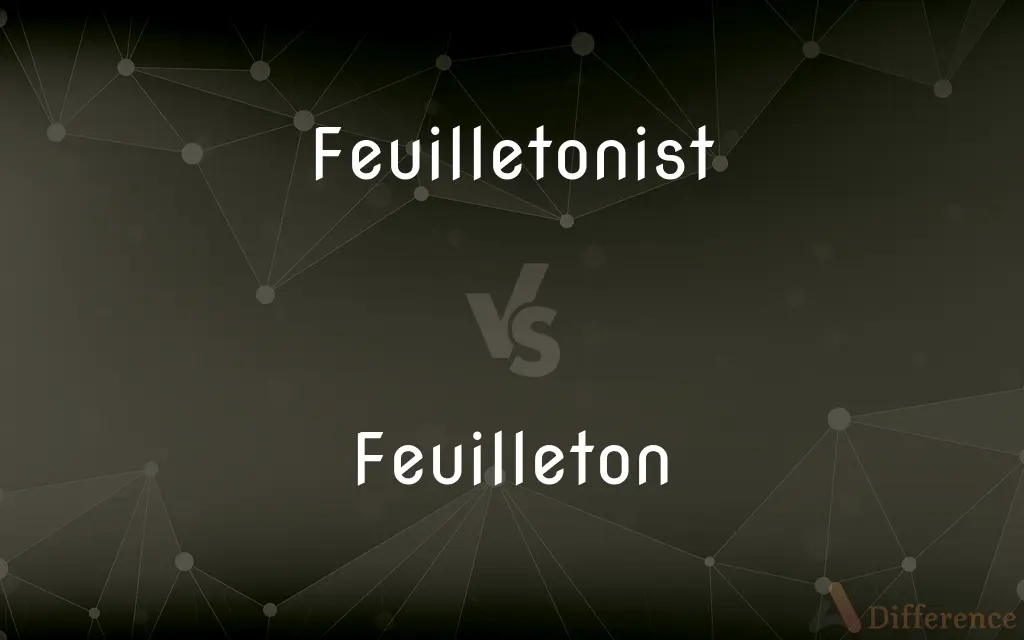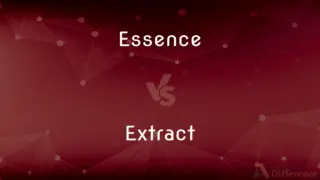Feuilletonist vs. Feuilleton — What's the Difference?

Difference Between Feuilletonist and Feuilleton
ADVERTISEMENT
Compare with Definitions
Feuilletonist
The part of a European newspaper devoted to light fiction, reviews, and articles of general entertainment.
Feuilleton
A feuilleton (French pronunciation: [fœjtɔ̃]; a diminutive of French: feuillet, the leaf of a book) was originally a kind of supplement attached to the political portion of French newspapers, consisting chiefly of non-political news and gossip, literature and art criticism, a chronicle of the latest fashions, and epigrams, charades and other literary trifles. The term feuilleton was invented by the editors of the French Journal des débats; Julien Louis Geoffroy and Bertin the Elder, in 1800.
Feuilletonist
An article appearing in such a section.
Feuilleton
The part of a European newspaper devoted to light fiction, reviews, and articles of general entertainment.
Feuilletonist
A novel published in installments.
ADVERTISEMENT
Feuilleton
An article appearing in such a section.
Feuilletonist
A light, popular work of fiction.
Feuilleton
A novel published in installments.
Feuilletonist
A short literary essay or sketch.
Feuilleton
A light, popular work of fiction.
Feuilletonist
A writer of feuilletons.
Feuilleton
A short literary essay or sketch.
Feuilleton
A section of a European newspaper typically dedicated to arts, culture, criticism, and light literature.
Feuilleton
An article published in such a section.
Feuilleton
A part of a French newspaper (usually the bottom of the page), devoted to light literature, criticism, etc.; also, the article or tale itself, thus printed.
Share Your Discovery

Previous Comparison
Accounting vs. Finance
Next Comparison
Essence vs. Extract














































